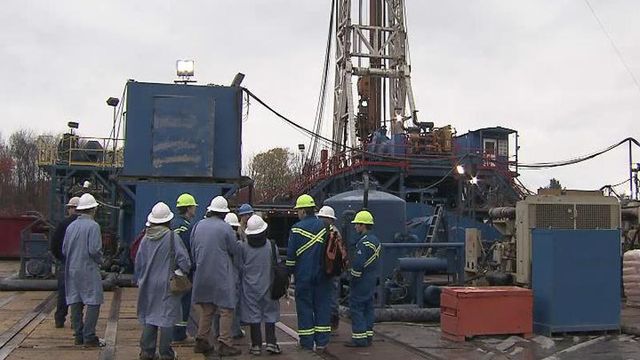McCrory enthusiastic about fracking, Dalton wary of safety
As part of an ongoing look at Election 2012 and the issues that define it, WRAL News is examining gubernatorial candidates Pat McCrory and Walter Dalton's stances on education funding, economic policy and gas exploration.
Recently, McCrory and Dalton weighed in on hydraulic fracturing, or "fracking," which involves drilling down and then horizontally to reach long pockets of gas sandwiched between layers of rock. A high-pressure mix of water, sand and chemicals is then injected into a well to fracture the rock layers and free the gas.
McCrory, a Republican, told WRAL News anchor David Crabtree on Saturday's broadcast of "On the Record" that he is an enthusiastic supporter of offshore and inland gas exploration. In fact, it's at the center of his plan to create jobs.
"There's no reason why NC should be sitting on the sidelines while other states of Democratic and Republican governors are involved in this process – and those states are the ones with the lowest unemployment rate. And they're also participating in our countries energy independence," McCrory said.
He accused his Democratic opponent Dalton, who appeared on "On the Record" the previous week, of being opposed to fracking. Dalton, however, said he supports fracking as long as it can be done safely, but cited a U.S. Geological Survey study that casts doubt on whether that will ever happen in North Carolina.
"It said that if you fracked all you could possibly frack in North Carolina, it would produce six days of national supply," Dalton said. "Now I was a business major at UNC, and that tells me that fracking will never be done in a commercial sense in North Carolina. That is not enough demand to create those jobs, and those jobs are six to eight years out."











